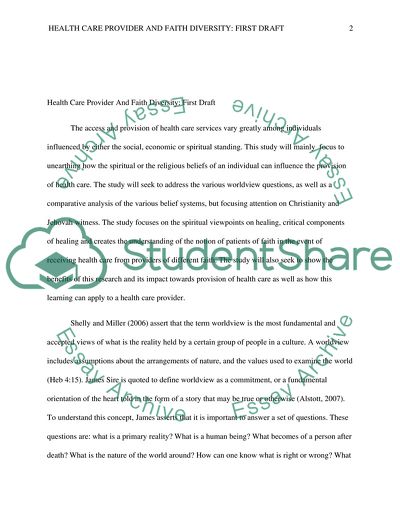Cite this document
(Health Care Provider and Faith Diversity Essay Example | Topics and Well Written Essays - 1500 words - 3, n.d.)
Health Care Provider and Faith Diversity Essay Example | Topics and Well Written Essays - 1500 words - 3. Retrieved from https://studentshare.org/health-sciences-medicine/1858863-health-care-provider-and-faith-diversity-first-draft
Health Care Provider and Faith Diversity Essay Example | Topics and Well Written Essays - 1500 words - 3. Retrieved from https://studentshare.org/health-sciences-medicine/1858863-health-care-provider-and-faith-diversity-first-draft
(Health Care Provider and Faith Diversity Essay Example | Topics and Well Written Essays - 1500 Words - 3)
Health Care Provider and Faith Diversity Essay Example | Topics and Well Written Essays - 1500 Words - 3. https://studentshare.org/health-sciences-medicine/1858863-health-care-provider-and-faith-diversity-first-draft.
Health Care Provider and Faith Diversity Essay Example | Topics and Well Written Essays - 1500 Words - 3. https://studentshare.org/health-sciences-medicine/1858863-health-care-provider-and-faith-diversity-first-draft.
“Health Care Provider and Faith Diversity Essay Example | Topics and Well Written Essays - 1500 Words - 3”, n.d. https://studentshare.org/health-sciences-medicine/1858863-health-care-provider-and-faith-diversity-first-draft.


